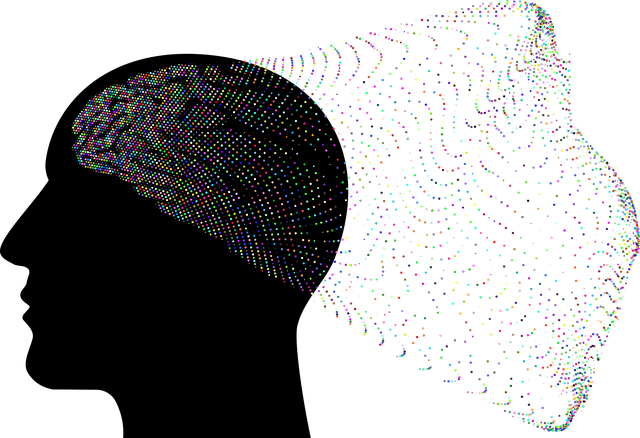At Broomfield Divorce Therapy, understanding mental health data is key for personalized treatment. We collect diverse information like survey responses and clinical assessments, preparing and normalizing data for accuracy. Considering demographics and integrating self-esteem improvement plus mental wellness journaling enriches our insights. Advanced data analysis techniques using AI enhance emotional intelligence and cultural sensitivity, allowing tailored coping skills development. Strategic communication translates complex data into actionable insights, focusing on strengths and challenges empathetically. Our holistic approach creates a safe space, strengthens the therapeutic bond, and improves overall care effectiveness at Broomfield Divorce Therapy.
Mental health data analysis is a powerful tool in understanding and improving well-being, especially through the lens of Broomfield Divorce Therapy. This article explores the process of collecting, preparing, and interpreting mental health data using advanced analytical techniques. We delve into strategies for effective communication and intervention planning, leveraging insights from Broomfield Divorce Therapy to enhance therapeutic outcomes and personal growth. By integrating these methods, we aim to revolutionize mental health support.
- Understanding Mental Health Data: Collection and Preparation
- Advanced Analytical Techniques for Deep Insights
- Interpreting Results: Strategies for Effective Communication and Intervention Planning with Broomfield Divorce Therapy
Understanding Mental Health Data: Collection and Preparation

Understanding Mental Health Data is a pivotal step in any analysis process. When it comes to assessing and improving mental health, data collection methods play a crucial role. This involves gathering various forms of information, such as survey responses, clinical assessments, or even social media interactions, all of which provide insights into individuals’ psychological well-being. The initial phase of data preparation is essential to ensure accuracy and consistency. This includes cleaning the data to remove any errors or duplicates, and normalizing it to a standardized format, especially when dealing with sensitive information. For instance, in the context of Broomfield Divorce Therapy, understanding clients’ emotional journeys requires meticulously prepared data that can highlight trends and patterns, facilitating more personalized treatment plans for self-esteem improvement and coping skills development.
Effective mental health data analysis begins with a comprehensive understanding of the population under study. This involves considering diverse factors such as age, gender, cultural backgrounds, and socioeconomic status, which can influence an individual’s mental wellness. By integrating Self-Esteem Improvement and Mental Wellness Journaling Exercise Guidance into data collection processes, researchers can gain deeper insights into people’s internal experiences and challenges. These techniques not only help in identifying common mental health concerns but also offer valuable guidance for tailored interventions, ultimately enhancing overall mental wellness.
Advanced Analytical Techniques for Deep Insights

In the realm of mental health data analysis, advanced analytical techniques are transforming how professionals gain deep insights into client experiences and behaviors. These tools extend beyond traditional statistical methods to incorporate sophisticated algorithms, machine learning models, and artificial intelligence, enabling a nuanced understanding of complex psychological phenomena. By applying these innovative approaches, practitioners like those at Broomfield Divorce Therapy can uncover subtle patterns and trends within large datasets, leading to more personalized and effective treatment strategies.
For instance, the integration of Emotional Intelligence in mental healthcare practice benefits from these advanced techniques, as they help identify emotional cues and triggers that may not be apparent through conventional means. Similarly, Cultural Sensitivity becomes enhanced, allowing for a better appreciation of diverse client backgrounds and their unique coping mechanisms. Moreover, these analytical methods support the development of coping skills by identifying areas where clients might struggle and tailoring interventions accordingly.
Interpreting Results: Strategies for Effective Communication and Intervention Planning with Broomfield Divorce Therapy

Interpreting results from mental health data is a critical step in effective intervention planning, especially within contexts like Broomfield Divorce Therapy. At Broomfield Divorce Therapy, we employ strategic communication techniques to ensure that findings are not only understood but also used constructively. This involves translating complex data into actionable insights, considering cultural nuances, and tailoring language to suit the client’s level of understanding. For instance, when assessing a client’s risk factors using tools like comprehensive mental illness stigma reduction efforts or risk assessment for mental health professionals, we present findings in an empathetic manner, focusing on strengths and coping mechanisms alongside challenges.
This approach leverages compassion cultivation practices, fostering a safe and supportive environment that encourages open dialogue. By doing so, Broomfield Divorce Therapy aims to empower individuals not just to understand their mental health data but also to actively participate in developing personalized intervention plans. This holistic strategy not only enhances the accuracy of interpretations but also strengthens the therapeutic bond, ultimately enhancing the effectiveness of care.
Mental health data analysis is a powerful tool for understanding complex issues and guiding interventions. By employing advanced analytical techniques, such as predictive modeling and sentiment analysis, professionals can gain deep insights into individual and population-level mental health trends. As highlighted by Broomfield Divorce Therapy, effective communication of these findings is crucial for tailoring intervention strategies. This holistic approach ensures that data-driven decisions in mental health care lead to more successful outcomes and improved well-being for those seeking support.














